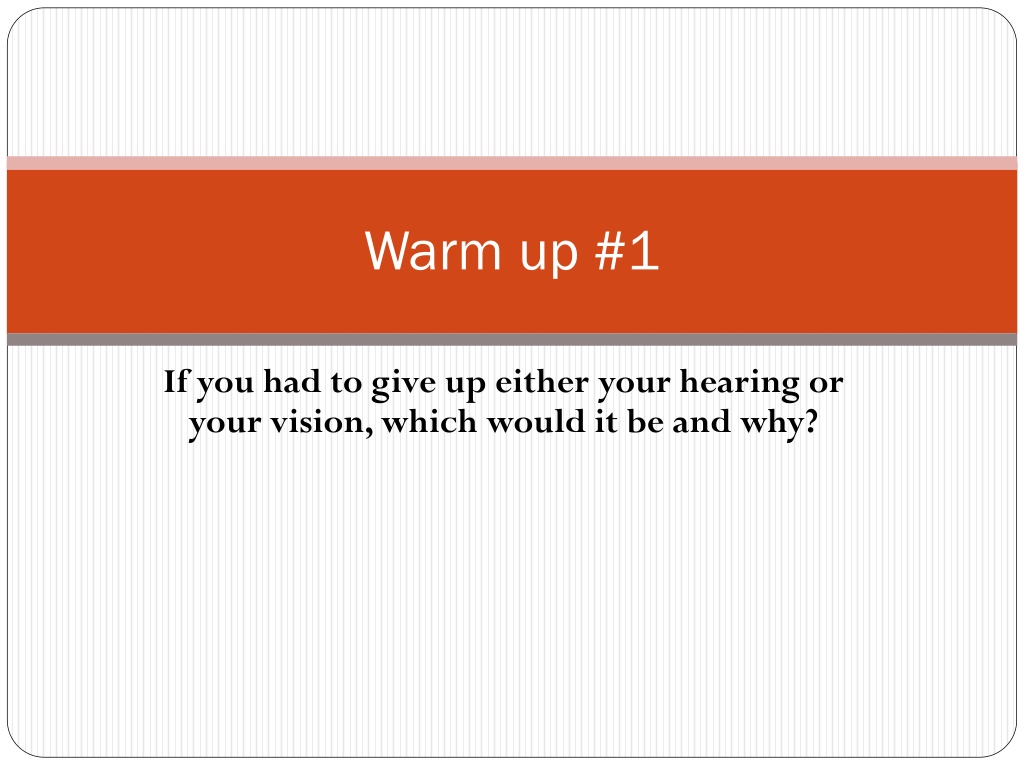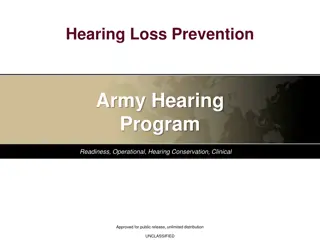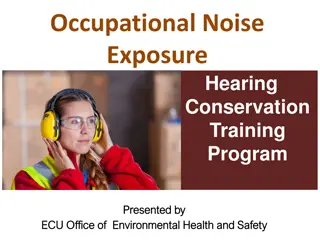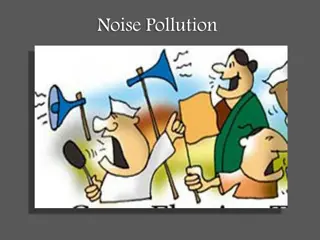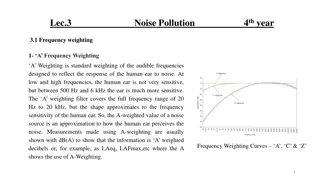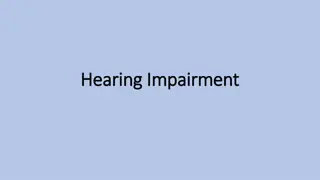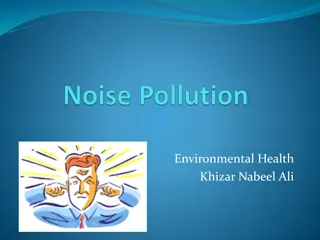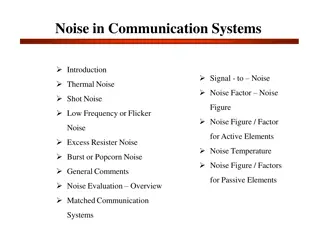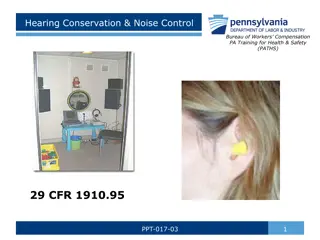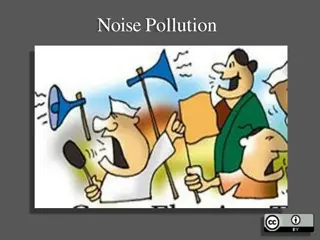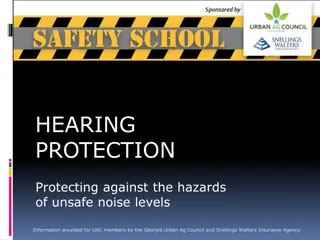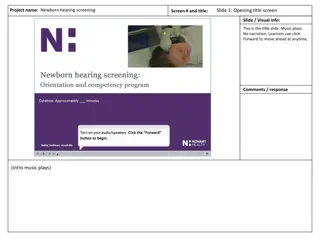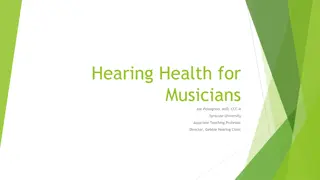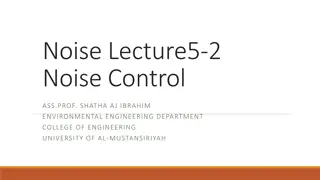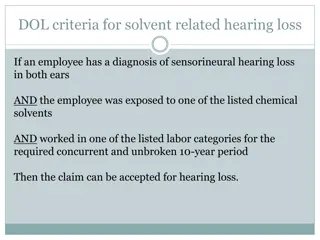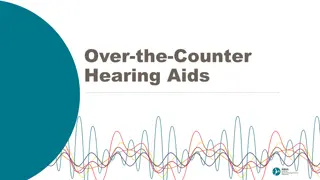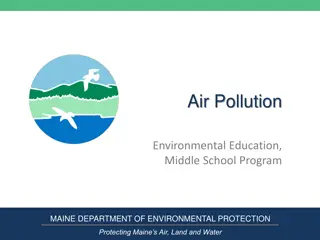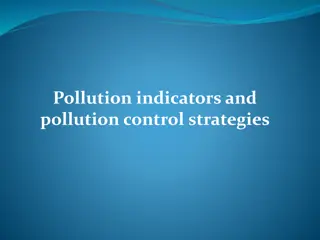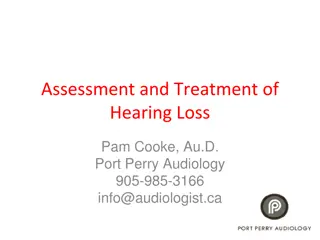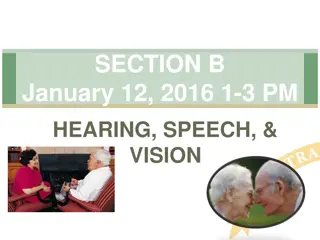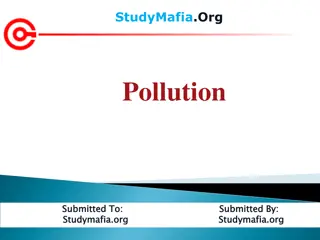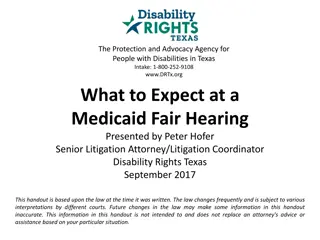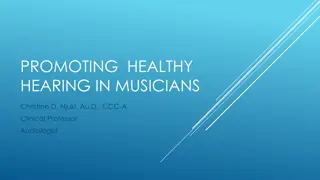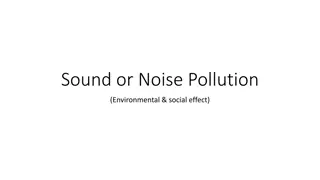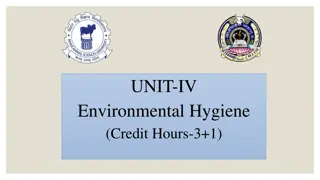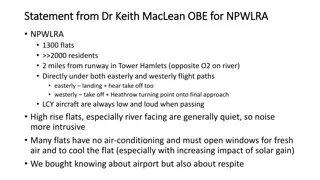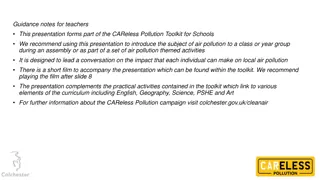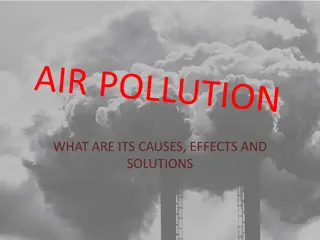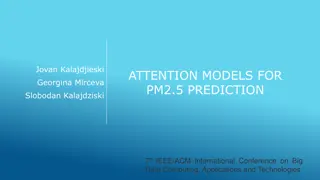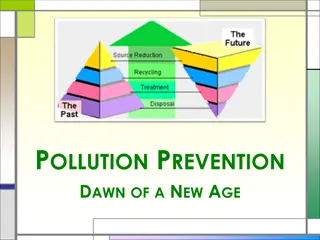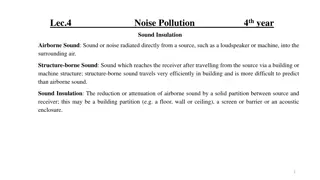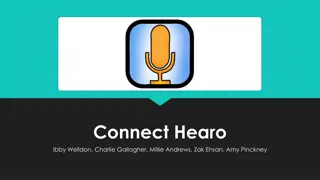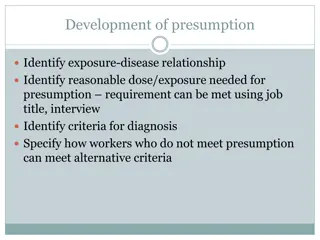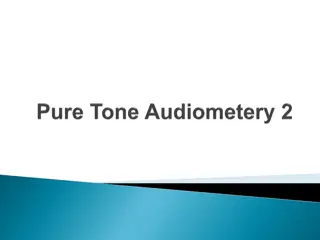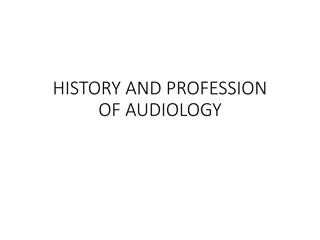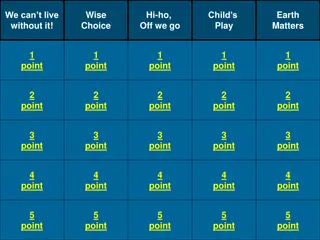Protecting Your Hearing and Vision: Understanding the Impact of Noise Pollution
This content delves into the importance of protecting your hearing and vision, highlighting the harmful effects of noise pollution on hearing. It explains methods to safeguard your eyes and ears, emphasizing the detrimental impact of loud noises on hearing health. Various everyday scenarios and activities that can harm hearing are discussed, along with tips to prevent hearing loss.
Download Presentation

Please find below an Image/Link to download the presentation.
The content on the website is provided AS IS for your information and personal use only. It may not be sold, licensed, or shared on other websites without obtaining consent from the author. Download presentation by click this link. If you encounter any issues during the download, it is possible that the publisher has removed the file from their server.
E N D
Presentation Transcript
Warm up #1 If you had to give up either your hearing or your vision, which would it be and why?
Hearing & Vision 6.PCH.1.5 & 6.PCH.1.6 Explain methods of protecting eyes and vision. Summarize protective measures for ears and hearing.
Noise Pollution Sounds that cause harm/loss to one s hearing. Noise is measured by decibels. Loud noises have a higher number of decibels, softer noises fewer. 85 dB and above leads to loss of hearing.
How Loud Is Too Loud? Sound waves in the air are caught by the outer ear, travel the ear channel to the inner ear, and vibrate against the ear drum. The eardrum is a sensitive membrane, or thin piece of skin. Loud noises can damage the eardrum. Some loud noises cause pain, but DAMAGE CAN BE DONE TO THE INNER EAR EVEN BEFORE SOMEONE FEELS PAIN.
How Loud Is Too Loud? A ringing or temporary loss in hearing is a sign that noise is too loud for that individual. To protect themselves from hearing loss, students can: 1. Turn down the volume on radios and other sound sources especially in closed places like cars. 2. Sit farther away from speakers at concerts. 3. Wear ear plugs when mowing with a loud mower. 4. Cover ears during cold and windy weather.
Individual Work 1)- List examples of noise that could affect your hearing . 1. Noise at Work 2. Noise from Hobbies 3. Noise from Music 4. Noise from Motorized Tools 2)- Come up with situations that could harm one s hearing by participating in these everyday activities.
Ideas Noise at Work: Machines Loud Music Airplanes Noise from Hobbies: 4 Wheelers Motorbikes Shooting Guns Noise from Music: Rock Concerts Radio or MP3 Player Playing Instruments Noise from Motorized Tools: Lawn Mowers Chain Saws Tractors
Noise Levels by Daily Activity Source of Noise Sound level (dB) Firearms 140 to 170 Jet engines 140 Rock concerts 90 to 130 Amplified car sound systems 140 (at full volume) Portable stereos (e.g., MP3 players) 115 (at full volume) Power mowers 105 Subway trains 100 Video arcades 100 Electric razors 85 Crowded school buses 85 School recesses or assemblies 85
Noise Levels Explained https://www.youtube.com/watch?v=wi_a awsChqA
Warm up #2 Write a paragraph of what you think life would be like if you could not see. 1.
Eye Safety https://www.youtube.com/watch?v=pfAZwGZS-Hk
Eye Care Tips for Inside Take a break when using your computer , watching TV, and reading. Resting your eyes from time to time will prevent eyestrain. Try not to sit too close to a TV or computer screen. They should be at least 2 feet away from your face. Read and watch TV in a well-lighted room. Light should come from above your reading material. Wear safety goggles during science labs or building materials. Especially important when holding sharp objects.
Risks for Eyes and Vision Diabetes Operating Machinery Exposure to the Sun Outdoor Activities/Sports Power Equipment Secondhand Smoke Overexposure to TV/Computer Monitors Computer Gaming Allergies
Eye Care Tips for Outside/General Wear sunglasses outdoors on sunny days. Buy sunglasses that have UV-approved lenses. If your eyes hurt or itch, don t rub them. You could have allergies or an infection. Tell a parent or guardian. If you get something in your eye, try to blink to let tears wash it out. If this doesn t work, rinse the eye with water. Never share eye-makeup or eye care products. Using some- one else's products can spread germs. Get regular vision screenings and eye exams.
